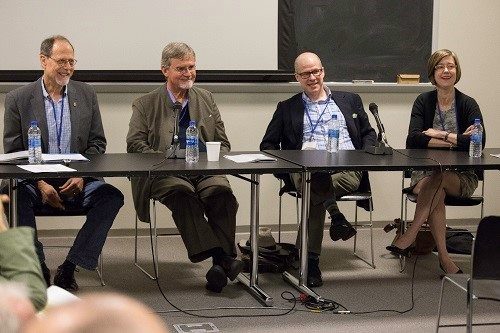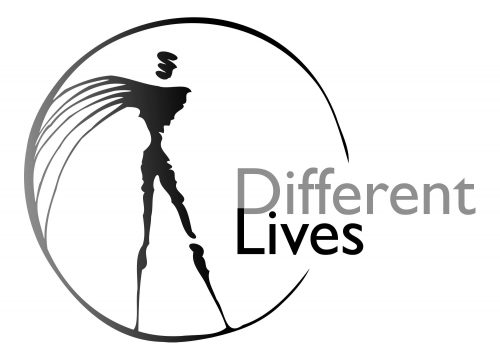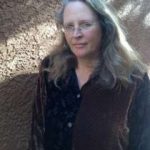September 4th, 2018
We’re highlighting here some of the books due out this fall and winter that are likely to garner critical and popular acclaim, because of their subject, their author, or both. The titles already getting buzz are drawn from Publishers Weekly, Kirkus Reviews, Booklist, Library Journal, and Amazon, among others. BIO members with upcoming releases are noted in bold type.
Please note: We do our best to learn about new books, and the ongoing monthly “In Stores” feature in The Biographer’s Craft will include even more fall and winter releases. But, if we’ve missed any members’ upcoming releases, please let us know so we can add them to this list.
September
Young Benjamin Franklin: The Birth of Ingenuity by Nick Bunker (Knopf)
Frank and Al: FDR, Al Smith, and the Unlikely Alliance That Created the Modern Democratic Party by Terry Golway (St. Martin’s Press)
Gandhi: The Years That Changed the World by Ramachandra Guha (Knopf)
Eliza Hamilton: The Extraordinary Life and Times of the Wife of Alexander Hamilton by Tilar J. Mazzeo (Gallery)
The Fabulous Bouvier Sisters: The Tragic and Glamorous Lives of Jackie and Lee by Sam Kashner and Nancy Schoenberger (Harper)
Sound Pictures: The Life of Beatles Producer George Martin, The Later Years, 1966–2016 by Kenneth Womack (Chicago Review Press)
The Dinosaur Artist: Obsession, Betrayal, and the Quest for Earth’s Ultimate Trophy by Paige Williams (Hachette)
The Spy and the Traitor: The Greatest Espionage Story of the Cold War
by Ben Macintyre (Crown)
Schumann: The Faces and the Masks by Judith Chernaik (Knopf)
Adam Smith: Father of Economics by Jesse Norman (Basic Books)
The Last Palace: Europe’s Turbulent Century in Five Lives and One Legendary House by Norman Eisen (Crown)
Rush: Revolution, Madness, and Benjamin Rush, the Visionary Doctor Who Became a Founding Father by Stephen Fried (Crown)
Looking for Lorraine: The Radiant and Radical Life of Lorraine Hansberry by Imani Perry (Beacon Press)
Becoming Lincoln by William W. Freehling (University of Virginia Press)
The Escape Artists: A Band of Daredevil Pilots and the Greatest Prison Break of the Great War by Neal Bascomb (Houghton Mifflin Harcourt)
The ABC of Modern Biography by Nigel Hamilton and Hans Renders (Amsterdam University Press)
The Improbable Wendell Willkie: The Businessman Who Saved the Republican Party and His Country, and Conceived a New World Order by David Levering Lewis (Liveright)
A Fierce Glory: Antietam—The Desperate Battle That Saved Lincoln and Doomed Slavery by Justin Martin
(Da Capo Press)
The Browns of California: The Family Dynasty that Transformed a State and Shaped a Nation by Miriam Pawel (Bloomsbury Publishing)
October
Invisible: The Forgotten Story of the Black Woman Lawyer Who Took Down America’s Most Powerful Mobster by Stephen L. Carter (Henry Holt)
Thomas Cromwell: A Revolutionary Life by Diarmaid MacCulloch (Viking)
I Am Dynamite!: A Life of Nietzsche by Sue Prideaux (Tim Duggan Books)
Reagan: An American Journey by Bob Spitz (Penguin)
Frederick Douglass: Prophet of Freedom by David W. Blight (Simon & Schuster)
Fryderyk Chopin: A Life and Times by Alan Walker (Farrar, Straus and Giroux)
Ruth Bader Ginsburg: A Life by Jane Sherron De Hart (Knopf)
The Big Fella: Babe Ruth and the World He Created by Jane Leavy (HarperCollins)
Chalk: The Art and Erasure of Cy Twombly by Joshua Rivkin (Melville House)
Leaving the Gay Place: Billy Lee Brammer and the Great Society by Tracy Daugherty (University of Texas Press)
Mad, Bad, Dangerous to Know: The Fathers of Wilde, Yeats, and Joyce by Colm Tóibín (Scribner)
After Emily: Two Remarkable Women and the Legacy of America’s Greatest Poet by Julie Dobrow (W. W. Norton)
Josef Albers: Life and Work by Charles Darwent (Thames & Hudson)
Elizabeth Jennings: The Inward War by Dana Greene (Oxford University Press)
In the Hurricane’s Eye: The Genius of George Washington and the Victory at Yorktown by Nathaniel Philbrick (Viking)
The White Darkness by David Grann (Doubleday)
Bing Crosby: Swinging on a Star: The War Years, 1940–1946 by Gary Giddins (Little, Brown)
The Last Pass: Cousy, Russell, the Celtics, and What Matters in the End by Gary M. Pomerantz (Penguin Press)
The Rise of Andrew Jackson: Myth, Manipulation, and the Making of Modern Politics by David S. Heidler and Jeanne T. Heidler (Basic Books)
Astounding: John W. Campbell, Isaac Asimov, Robert A. Heinlein, L. Ron Hubbard, and the Golden Age of Science Fiction by Alec Nevala-Lee (Dey Street Books)
The League: How Five Rivals Created the NFL and Launched a Sports Empire by John Eisenberg (Basic Books)
Slowhand: The Life and Music of Eric Clapton by Philip Norman (Little, Brown)
Feuding Fan Dancers: Faith Bacon, Sally Rand, and the Golden Age of the Showgirl by Leslie Zemeckis (Counterpoint)
The Man Who Wrote the Perfect Novel: John Williams, Stoner, and the Writing Life by Charles J. Shields (University of Texas Press)
Enemies Within: Communists, the Cambridge Spies and the Making of Modern Britain by Richard Davenport-Hines (William Collins)
Robert Graves: From Great War Poet to Good-bye to All That (1895–1929) by Jean Moorcroft Wilson (Bloomsbury Continuum)
November
Born to Be Posthumous: The Eccentric Life and Mysterious Genius of Edward Gorey by Mark Dery (Little, Brown)
The Man in the Glass House: Philip Johnson, Architect of the Modern Century by Mark Lamster (Little, Brown)
Churchill: Walking with Destiny by Andrew Roberts (Viking)
Heirs of the Founders: The Epic Rivalry of Henry Clay, John Calhoun and Daniel Webster, the Second Generation of American Giants by H. W. Brands (Doubleday)
The Life of Saul Bellow: Love and Strife, 1965–2005 by Zachary Leader (Knopf)
Winter War: Hoover, Roosevelt, and the First Clash Over the New Deal by Eric Rauchway (Basic Books)
Civil War Barons: The Tycoons, Entrepreneurs, Inventors, and Visionaries Who Forged Victory and Shaped a Nation by Jeffry D. Wert (Da Capo Press)
William Penn: A Life by Andrew R. Murphy (Oxford University Press)
John Marshall: The Man Who Made the Supreme Court by Richard Brookhiser (Basic Books)
Being John Lennon: A Restless Life by Ray Connolly (Pegasus Books)
Hesse: The Wanderer and His Shadow by Gunnar Decker, translated by Peter Lewis (Harvard University Press)
The Betrayal of Mary, Queen of Scots: Elizabeth I and Her Greatest Rival by Kate Williams (Pegasus Books)
In Byron’s Wake: The Turbulent Lives of Lord Byron’s Wife and Daughter: Annabella Milbanke and Ada Lovelace by Miranda Seymour (Pegasus Books)
In Extremis: The Life and Death of the War Correspondent Marie Colvin by Lindsey Hilsum (Farrar, Straus and Giroux)
Insane Mode: How Elon Musk’s Tesla Sparked an Electric Revolution to End the Age of Oil by Hamish McKenzie (Dutton)
December
All That Heaven Allows: A Biography of Rock Hudson by Mark Griffin (Harper)
The Caesar of Paris: Napoleon Bonaparte, Rome, and the Artistic Obsession that Shaped an Empire by Susan Jaques (Pegasus Books)
Walter Kaufmann: Philosopher, Humanist, Heretic by Stanley Corngold (Princeton University Press)
Ike’s Mystery Man: The Secret Lives of Robert Cutler by Peter Shinkle (Steerforth)
January 2019
Hollywood’s Eve: Eve Babitz and the Secret History of L.A. by Lili Anolik (Scribner)
Queen Bey: A Celebration of the Power and Creativity of Beyoncé Knowles-Carter by Veronica Chambers (St. Martin’s Press)
Funny Man: Mel Brooks by Patrick McGilligan (Harper)
The Birth of Loud: Leo Fender, Les Paul, and the Guitar-Pioneering Rivalry That Shaped Rock ’n’ Roll by Ian S. Port (Scribner)
Henry VIII: And the Men Who Made Him by Tracy Borman (Atlantic Monthly Press)
The Banished Immortal: A Life of Li Bai (Li Po) by Ha Jin (Pantheon)
Cuba Libre!: Che, Fidel, and the Improbable Revolution That Changed World History by Tony Perrottet (Blue Rider)
Code Name: Lise: The True Story of the Woman Who Became WWII’s Most Highly Decorated Spy by Larry Loftis (Gallery Books)
The First Conspiracy: The Secret Plot to Kill George Washington by Brad Meltzer and Josh Mensch (Flatiron Books)
February 2019
Mr. President, How Long Must We Wait?: Alice Paul, Woodrow Wilson, and the Fight for the Right To Vote by Tina Cassidy (Atria)
Wild Bill: The True Story of the American Frontier’s First Gunfighter by Tom Clavin (St. Martin’s Press)
The Man in the Willows: The Life of Kenneth Grahame by Matthew Dennison (Pegasus Books)
Let’s Play Two: The Life and Times of Ernie Banks by Doug Wilson (Rowman & Littlefield)
Inventing Edward Lear by Sara Lodge (Harvard University Press)

 On September 20 and 21, 2018, BIO joins the Biography Institute and the Biography Society in hosting the conference “Different Lives: Global Perspectives on Biography in Public Cultures and Societies.” The conference will take place in Groningen, Netherlands, home of the Biography Institute, which is directed by BIO member Hans Renders. The event will allow biographers to look beyond their own borders, explore how biography is practiced in other parts of the world, and discuss the cultural perspectives that guide biographers in their approach to the infinite complexity of their subjects.
On September 20 and 21, 2018, BIO joins the Biography Institute and the Biography Society in hosting the conference “Different Lives: Global Perspectives on Biography in Public Cultures and Societies.” The conference will take place in Groningen, Netherlands, home of the Biography Institute, which is directed by BIO member Hans Renders. The event will allow biographers to look beyond their own borders, explore how biography is practiced in other parts of the world, and discuss the cultural perspectives that guide biographers in their approach to the infinite complexity of their subjects. Caroline Fraser won the 2018 Plutarch Award for Prairie Fires: The American Dreams of Laura Ingalls Wilder. The book had previously won the Pulitzer Prize for Biography, among other honors. Fraser received her award at the ninth annual BIO Conference on May 20.
Caroline Fraser won the 2018 Plutarch Award for Prairie Fires: The American Dreams of Laura Ingalls Wilder. The book had previously won the Pulitzer Prize for Biography, among other honors. Fraser received her award at the ninth annual BIO Conference on May 20.